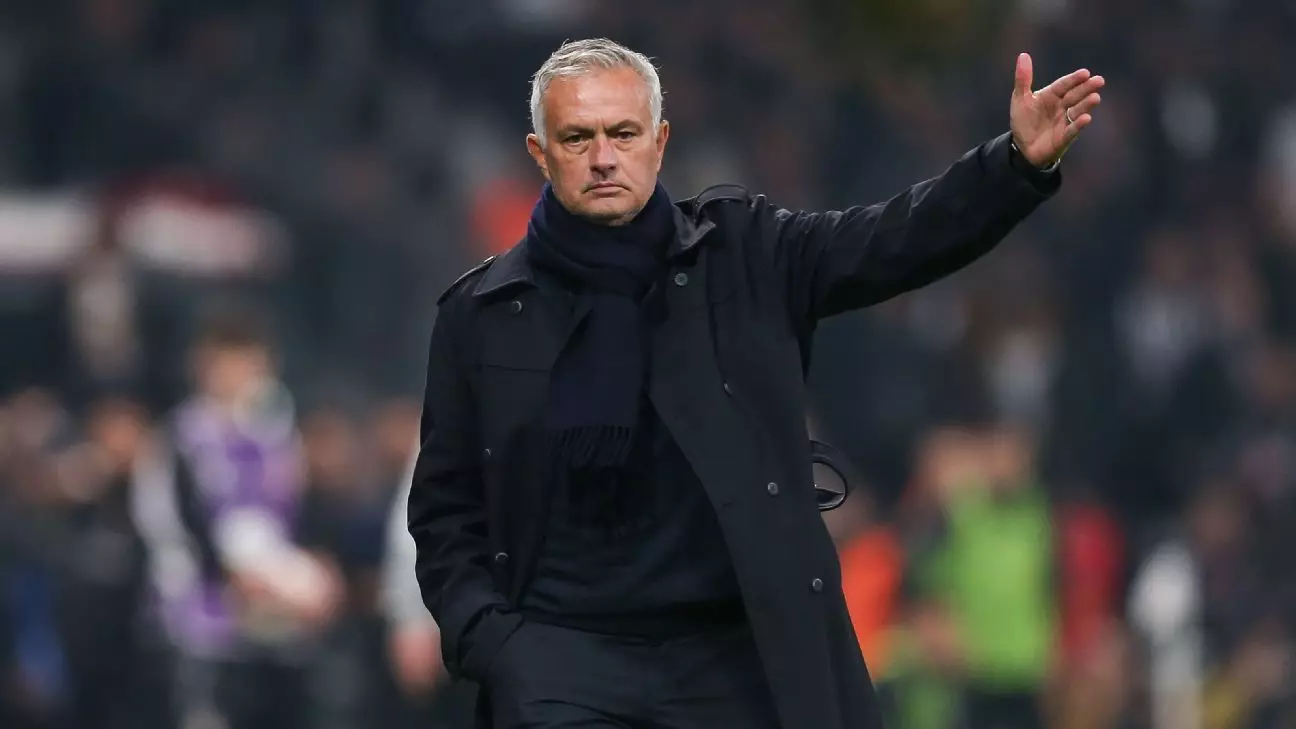The world of football is often rife with rivalries, but few are as captivating and enduring as the tension between José Mourinho and Pep Guardiola. Recently, this rivalry ignited once again as the two coaches exchanged sharp remarks concerning Manchester City’s ongoing financial scrutiny and the broader implications of justice within the sport. As Mourinho, now at the helm of Fenerbahce, responded to Guardiola’s defense of Manchester City, it became clear that this confrontation encompasses more than just personal animosity; it speaks to fundamental issues within the sport itself.
In recent comments, José Mourinho emphasized his aspiration for “justice in football,” distancing himself from any desire for Manchester City to face demotion to the lower leagues. Mourinho clarified that his motivations are rooted in fairness rather than mere competition. He stated, “It’s not true that I want Man City to be relegated. It’s true that I like justice,” highlighting how smaller clubs have been penalized for financial transgressions that the bigger clubs seem to escape. This plea for equity resonates deeply with various stakeholders within the sport, as many believe that financial disparities create an unlevel playing field, distorting competition.
Mourinho’s reflection on his experience at AS Roma serves to underscore his message about the seemingly unequal enforcement of financial regulations. He referenced the restrictions imposed on him, noting that smaller clubs often face dire repercussions for minor violations while larger clubs allegedly navigate their way through loopholes. This sentiment strikes a chord with fans and professionals alike who witness the imbalance in power and resources at play within elite football.
Conversely, Guardiola’s retort to Mourinho reveals his own defensiveness regarding the financial issues surrounding his club. In his characterization of Mourinho’s comments as indicative of a wider bias against Manchester City, Guardiola not only defended his own accomplishments — symbolized by his six fingers gesture — but also painted a picture of organizational victimhood. His assertion that Mourinho’s sentiments stem from a desire to see City punished sheds light on the fragile relationship between the two coaches, one steeped in historical competition yet not devoid of mutual respect.
While Guardiola did not directly address Mourinho’s recent remarks during his pre-match press conference ahead of a Champions League matchup, his prior comments indicate an underlying acknowledgment of the rivalry’s complexities.
Mourinho further attempted to lessen any potential rift by affirming his respect for Guardiola, mentioning their early interactions when Mourinho was an assistant coach at Barcelona, years before their careers took divergent paths. “I like him a lot, and he knows that,” Mourinho asserted, emphasizing that any verbal sparring should not distract from their underlying mutual admiration. This acknowledgment reminds fans that passion and rivalry in football can coexist with respect and appreciation for one another’s contributions to the sport.
As the current season progresses and both coaches look to secure more accolades, it’s clear that their rivalry will continue to provide both entertainment and food for thought. The tension between their philosophies — Mourinho’s penchant for accountability and Guardiola’s defense of his club’s standing — encapsulates the broader struggle within football regarding how financial regulations and sporting fairness are implemented and upheld.
The discourse between Mourinho and Guardiola extends beyond their personal feud; it tackles pressing issues of economic fairness and the integrity of football. The quest for justice articulated by Mourinho invites fans, players, and coaches alike to reflect on the profound implications of financial management within the sport. As football continues to evolve, the enduring rivalry between these two remarkable coaches serves as a prism through which the complexities of modern football can be examined.
Ultimately, whether seen through the lens of tactical brilliance, personal rivalry, or ethical discourse, the Mourinho-Guardiola saga is undeniably essential to the narrative of contemporary football. As both coaches navigate their careers, their actions and words will likely continue to shape the discourse around fairness, accountability, and the true spirit of the beautiful game.

